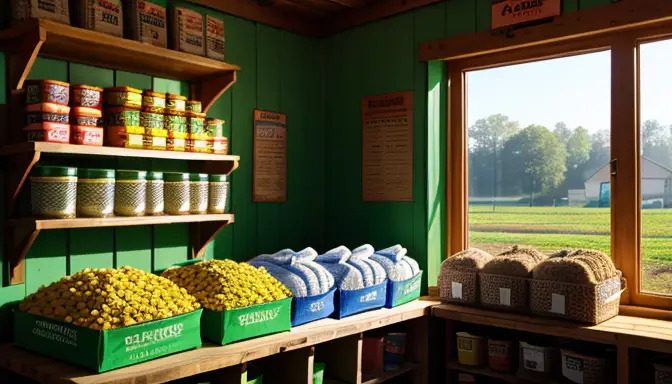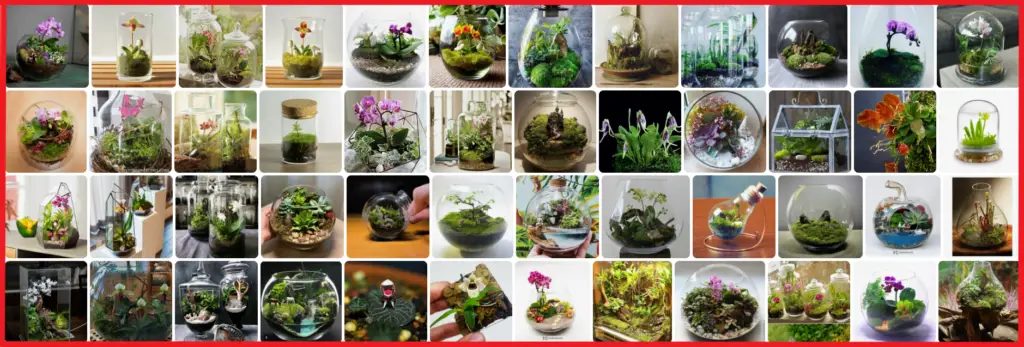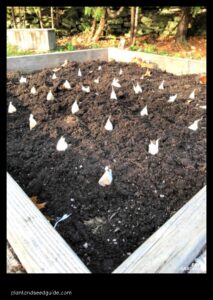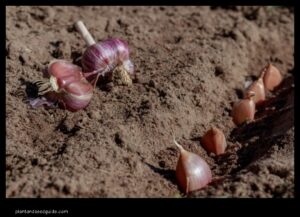When it comes to fertilizers, having foresight can make all the difference in ensuring your plants receive the nutrients they need to thrive. Understanding the shelf life of fertilizers and implementing proper storage techniques are key to maintaining their effectiveness. Let’s dive into the world of fertilizers and discover how you can keep them potent and beneficial for your plants.
Understanding Shelf Life of Fertilizers
When it comes to fertilizers, understanding their shelf life is crucial for ensuring maximum effectiveness in your gardening efforts.
By grasping the concept of shelf life, you can make informed decisions on when to use or replace your fertilizers.The shelf life of fertilizers can vary depending on several factors, including their composition, packaging, and storage conditions..
Factors that influence the shelf life of fertilizers include exposure to moisture, temperature fluctuations, and the presence of contaminants. It’s essential to store fertilizers in a cool, dry place away from direct sunlight to preserve their quality. Additionally, avoiding extreme temperatures and humidity levels can help extend the shelf life of your fertilizers.
One way to determine if a fertilizer is still viable for use is to check for any visible signs of degradation, such as clumping, discoloration, or foul odors. Performing a simple smell or texture test can give you valuable insights into the condition of your fertilizer and whether it is still potent enough to benefit your plants.
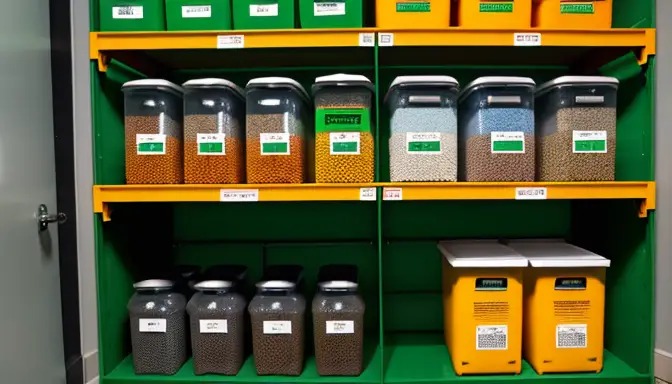
Optimal Storage Conditions
When it comes to the optimal storage conditions for fertilizers, there are key factors that can significantly impact their effectiveness and longevity.
To achieve this, consider the following guidelines:Proper storage techniques play a crucial role in maintaining the nutrient content of fertilizers and ensuring they remain viable for use..
- Keep fertilizers in a cool, dry place: Excessive heat and moisture can accelerate the degradation process of fertilizers. Store them in a cool and dry environment to prevent nutrient loss.
- Avoid exposure to sunlight: Ultraviolet rays from the sun can break down the components of fertilizers, reducing their efficacy. Store fertilizers in opaque containers or shaded areas.
- Seal containers tightly: Air exposure can lead to moisture absorption and nutrient evaporation. Ensure that fertilizer containers are tightly sealed to maintain their quality.
- Separate incompatible fertilizers: Some fertilizers can react with each other when in close proximity, leading to nutrient loss or even hazardous chemical reactions. Store incompatible fertilizers separately to prevent cross-contamination.
Temperature and Humidity Control
In the realm of fertilizer storage, temperature and humidity control are like the dynamic duo, working together to ensure the longevity and efficacy of your fertilizers. Picture them as the Batman and Robin of the gardening world, swooping in to save the day and protect your precious nutrient-rich blends from degradation.
When it comes to temperature, aim to keep your fertilizers in a cool, dry place. Extreme heat can cause chemical reactions that break down the nutrients in the fertilizer, rendering it less effective. On the flip side, excessive cold can lead to moisture buildup, potentially causing clumping or caking of the product.
Humidity is another key player in this storage saga. High humidity levels can introduce moisture into the fertilizer, leading to clumping and reducing its flowability. To combat this, consider using airtight containers or bags to create a barrier against moisture infiltration.
To summarize, maintaining a balance of temperature and humidity control is paramount in preserving the quality and potency of your fertilizers. By heeding these guidelines, you can ensure that your fertilizers remain in prime condition, ready to provide your plants with the nourishment they need to flourish.
Container Selection and Maintenance
When it comes to storing fertilizers, selecting the right containers and maintaining them properly are key factors in preserving their quality and effectiveness.
Additionally, proper maintenance of these containers, such as regular cleaning and inspection for any damages, can further extend the shelf life of the fertilizers.Choosing containers that are specifically designed for storing fertilizers can help prevent contamination and ensure the longevity of the product..
Here are some tips for container selection and maintenance:
- Opt for containers made of durable materials that are resistant to corrosion and leakage.
- Ensure the containers have tight-fitting lids to prevent moisture and air exposure.
- Label containers clearly with the type of fertilizer and the date of storage to track their shelf life.
- Store containers in a cool, dry place away from direct sunlight to maintain the integrity of the fertilizers.
By following these container selection and maintenance practices, you can ensure that your fertilizers remain potent and effective for longer periods, providing your plants with the nutrients they need for healthy growth.
Signs of Fertilizer Degradation
When it comes to ensuring the effectiveness of your fertilizers, being able to recognize the signs of degradation is crucial. By understanding these indicators, you can prevent using ineffective products and maximize the health of your plants. Let’s delve into the key signs that may signal your fertilizer is no longer at its prime:
- Smell Changes: One of the first indicators of fertilizer degradation is a noticeable change in its smell. If the fertilizer emits a foul or off-putting odor, it may have lost its potency.
- Color Variation: Keep an eye out for any unusual color changes in your fertilizer. Discoloration, such as darkening or fading, can indicate chemical breakdown and reduced nutrient content.
- Texture Alteration: The texture of the fertilizer can also provide insights into its condition. Clumping, hardening, or the presence of unusual particles could signify degradation.
Smell, Color, and Texture Changes
When it comes to fertilizers, changes in smell, color, and texture can be key indicators of their quality and effectiveness.
Here are some common signs to look out for:By paying attention to these sensory cues, you can easily identify if your fertilizer has undergone any degradation and may no longer be suitable for your plants..
- Smell: A strong, unpleasant odor that differs from the usual scent of the fertilizer can indicate decomposition or contamination.
- Color: Any unusual changes in color, such as darkening or discoloration, may suggest chemical breakdown or the presence of harmful substances.
- Texture: If the texture of the fertilizer has become clumpy, sticky, or powdery when it should be granular, it could signal moisture infiltration or nutrient loss.
These changes in smell, color, and texture should prompt you to inspect your fertilizer more closely and consider testing its viability to ensure it can still provide the necessary nutrients for your plants’ growth.
Testing Fertilizer Viability
When it comes to ensuring the effectiveness of your fertilizers, testing their viability is a crucial step. By determining if your fertilizers are still potent and beneficial, you can avoid wasting time and resources on products that may no longer provide the necessary nutrients for your plants. To test the viability of your fertilizers, consider the following methods:
- Perform a solubility test to check if the fertilizer dissolves properly in water, indicating its nutrient availability.
- Conduct a germination test by using the fertilizer on a small batch of seeds to observe the growth and health of the plants.
- Utilize a pH testing kit to ensure that the acidity or alkalinity of the fertilizer is within the optimal range for plant growth.
By regularly testing the viability of your fertilizers, you can confidently provide your plants with the essential nutrients they need for healthy growth and development.
Frequently Asked Questions
- How long can fertilizers typically last before expiring?
Fertilizers can have varying shelf lives depending on their composition and storage conditions. In general, most fertilizers can last between 1 to 3 years if stored properly.
- What are the common signs that indicate fertilizer degradation?
Common indicators of fertilizer degradation include changes in color, foul odors, clumping or caking, and a decrease in effectiveness. It’s important to monitor these signs to ensure the quality of your fertilizers.
- How can I test the viability of my stored fertilizers?
You can perform a simple solubility test by mixing a small amount of fertilizer in water to check for dissolution. Additionally, using a soil test kit can help determine the nutrient levels in your fertilizer.
- Wild Rose Country: Exploring Untamed Beauty - July 15, 2024
- Wildflower Nursery Decor: Bringing Nature Indoors - July 15, 2024
- Young Sprout of Grass: Nurturing New Life - July 15, 2024
